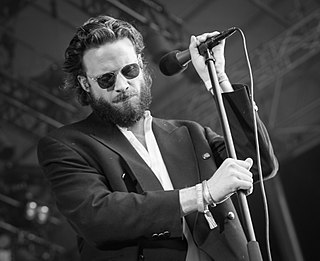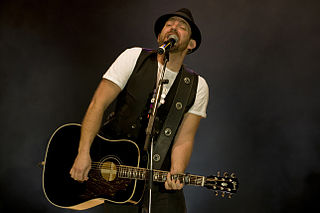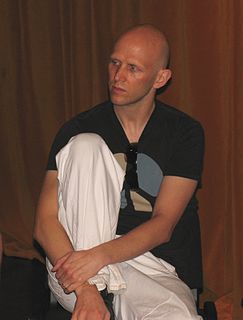A Quote by J Tillman
I don't feel any obligation to make my intentions for a song accessible to a listener or an audience. I'm not interested in conveying anything to them so much as what's best for me.
Quote Topics
Related Quotes
An audience will let you know if a song communicates. If you see them kind of falling asleep during the song, or if they clap at the end of a song, then they're telling you something about the song. But you can have a good song that doesn't communicate. Perhaps that isn't a song that you can sing to people; perhaps that's a song that you sing to yourself. And some songs are maybe for a small audience, and some songs are for a wide audience. But the audience will let you know pretty quickly.
I'm a 'frotteur,' someone who likes to rub words in his hand, to turn them around and feel them, to wonder if that really is the best word possible. Does that word in this sentence have any electric potential? Does it do anything? Too much electricity will make your reader's hair frizzy. There's a question of pacing.
I really, really enjoy fitting words together - but I only enjoy it when it's easy, when it sort of rolls along by itself. I never erase anything [and] I hardly ever write anything down... The song will be finished before I write it down... I won't write a song unless it serves me in some way, unless I feel I have to write the song to make myself feel better. If you're not overflowing with something, there's nothing to give.
The fact is that all the recording science and technology in the world is no substitute for a good song or for real feeling. Music is about feeling and if there isn't any genuine feeling, if the song isn't about anything that anyone gives a damn about, there's nothing you can do. All the technique that exists won't make it any good; it'll just make it technological. All the production values you add won't do anything except make it glossy.




































